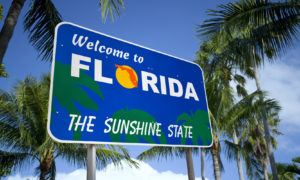Sales of $150 million are expected next year in Pennsylvania when legalized medical marijuana comes to market. Colorado, Washington and California each report annual sales exceeding $1 billion. Yet growers, processors and dispensaries in all states must do business in cash because marijuana remains an illegal substance under federal law. Banks refuse to accept money earned by the marijuana trade because the Federal Reserve System, the Federal Deposit Insurance Corp. and the U.S. Treasury Department have said banks do so at their peril. PNC Bank recently closed bank accounts of an advocacy organization that campaigns for marijuana legalization. PNC’s move drew headlines in Boston and Washington, D.C.
Pending in Congress are bills that would permit banks to handle money from marijuana sales without risking prosecution under federal statutes against money laundering. Whether the bills will become law is unknown. In the meantime, citizens and financial institutions must understand the competing legal rules and adapt their behavior accordingly.
For citizens, cash-only sales of marijuana mean that dispensaries and grower/processors must have high levels of physical security to reduce risk of robbery of money and theft of marijuana inventory. Those who live or work in the vicinity of marijuana operations will need to be alert to risks that come with high-security environments.
First responders will have additional responsibilities. Willie Sutton said he robbed banks “because that is where the money is.” In California, four robbers kidnapped an Orange County marijuana dispensary owner. The robbers burned the man with a blow torch in an effort to have him reveal the locations of cash the robbers believed he had buried in the desert. The victim survived and said his earlier trips to the desert had to do with a potential real estate development.
Under regulatory guidance issued by the federal departments of justice and treasury, banks must file suspicious activity reports for any financial transactions they believe to be related to the marijuana business. These reports are analyzed by the Treasury Department and referred to the FBI for investigation when appropriate.
Because they are not members of the Federal Reserve System, credit unions have become the financial institutions of choice for marijuana-related businesses in Washington and California. Unknown at present is whether Pennsylvania credit unions will accept marijuana-related businesses as customers. My law firm has received inquiries, but no Pennsylvania institution has yet said it will embrace the business.
Eventually, competing federal and state laws are likely to be harmonized. In the meantime, financial executives can serve their communities by viewing medical marijuana in value-neutral terms: it is simply a business opportunity.
At the banking industry norm of 1 percent return on assets (i.e., loans), banks or credit unions stand to earn $5 million if Pennsylvania marijuana sales reach $500 million. Because of the greater administrative and security risks associated with marijuana-related businesses, financial institutions probably will be able to earn a higher rate of return.
Banking for marijuana businesses will be a niche market, likely to attract only a handful of financial institutions state-wide, if Washington state’s experience is typical. For institutions that seize the opportunity and put the right resources to work accordingly, the flame will be worth the candle.
Link – Post Gazette





































